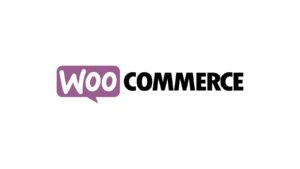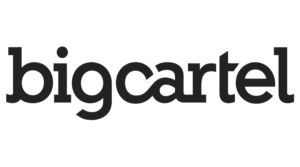
Beginner Read eCommerce and Merchandising
Are you missing out on sales? Our diagnostic will help you assess and improve your current strategy.
In this article
Every organisation will have its own unique combination of needs, budget and resource which will dictate which platform will work best for you. Before choosing a platform, it is important to have an idea of your goals and future intentions for the store to save time on re-platforming in the future. For example, if you’re looking to create a store with a small range, or to perhaps introduce print-on-demand products and ticketing bundles in the future, then the platform must also support these needs. Reviewing your store requirements will help determine which platform will be fit for purpose for now and in the future.
Other possible factors to consider when choosing a platform could be:
Let’s take a look at the top 7 platforms in more detail:

We’re going to start with Shopify as it’s one of the most popular platforms across the sector. Some key benefits of Shopify are that it’s really easy to set up, you don’t need any coding experience, and you could manage the build in-house without needing an agency (which saves on set-up costs). Thanks to its code-less store-building tools and its intuitive interface, users are able to easily set up products, manage orders and create promotions. Plus, there is a wide range of pre-existing shop templates that give you a professional-looking store, which can easily be branded for your organisation.
The level of support is by far the best across all the existing eCommerce platforms. This Software-as-a-Service (SaaS) platform has a large number of add-ons and extensions available that can extend the capability of your store, which is a huge selling-point. Most new apps are built to integrate with Shopify first due to the popularity of the platform, plus Shopify actively looks to partner with the next best tech. Shopify makes it easy to scale up or down for small and large sized organisations with different pricing levels available. It’s sole focus is eCommerce and retail, so if you are looking for a robust retail platform it is a great option.
A selection of arts and cultural organisations currently using Shopify: Baltic Mill, Museum of London, Southbank Centre, Barbican, Bristol Museums, Whitechapel Gallery, William Morris Gallery, Turner Contemporary, Royal Opera House, Tank Museum, Photographers Gallery, National Portrait Gallery, Royal Albert Hall, Snape Maltings, Unbound, National Theatre, Science Museum, Grimm and Co, Shakespeares Globe, National Portrait Gallery, Royal Shakespeare Company, Birmingham Royal Ballet, London Symphony Orchestra, Halle Concerts Society, Birmingham Museums Trust, Royal Philharmonic Orchestra ,Hepworth Wakefield, The Lowry Centre Trust, Museums Sheffield, The Reading Agency, Derby Museums, Towner Art Gallery, The Design Museum, Northern Print, Watts Gallery Trust, Wallace Collection, Sir John Soane Museum, Royal Museums Greenwich, British Motor Industry Museum, Live Art Development Agency (LADA), Amber Film & Photography Collective, Theatre Centre, Inpress, Snape Maltings, Kettles Yard, Manchester Art Gallery, National Theatre, SS Great Britain.
Site-building features:
Level of support:
A broad range of support services as noted below. In particular well-documented help centre with active community forums. Beyond this as Shopify is such a widely used platform there are many blog articles and videos available on other sites too.
Analytics available? Yes
Price:
Shopify pricing consists of a monthly platform charge plus transaction fees, with a discount available for paying annually. Shopify is considerably cheaper than enterprise-level platforms, but does tend to be more expensive than some platforms aimed more at individuals and micro-businesses. Be careful to take into account the cost of transaction fees and be aware that 3rd party apps often have additional costs too.
The main difference between the different subscription levels is the number of user accounts, the detail of reporting provided and the ability to setup more sophisticated process flows.
Check current Shopify pricing.

WooCommerce is an open-source WordPress shopping cart plugin owned and developed by WordPress. It’s one of the most popular eCommerce options, due to many websites being built with WordPress. It provides a convenient eCommerce solution which is free to install and won’t cost you extra hosting fees to get started if you are already using WordPress for your website.
You can build a seamless customer experience from website to shop under the same domain and utilise already existing marketing tools purchased for your website. There are many pre-existing shop templates to choose from or you can use a developer to create a custom looking shop to mirror the look of your website. It also has a large variety of app plug-ins to keep your store up to date with the latest trends such as product reviews, latest payment solutions and scaling opportunities. If your team isn’t very comfortable with updating your website, you may find making updates to your store difficult, but there are help guides and ticketed support available. It is often chosen by organisations who use a WordPress agency to maintain their website, or who have an in-house WordPress developer.
A selection of arts and cultural organisations currently using WooCommerce: Photoworks, National Horseracing Museum, Collections Trust, Ikon Gallery, Modern Art Oxford, Brighton Museums, Out of Joint, The Poetry Society, Jasmin Vardimon Dance Company, Serendipity, South London Gallery, Northern Broadsides Theatre Company, Company Chameleon, Multistory, National Youth Jazz Orchestra, Intoart, Punchdrunk, Art Car Boot Fair,
Site Building Features:
The free WooCommerce download comes with the following features:
Level of support:
The level of support for WooCommerce is lower than for other platforms. WooCommerce does not have phone or email support. Users have to file a ticket, which will be answered via live chat within 24 hours.
Analytics available? Yes
Price: Free to download, some extensions and add-ons will incur extra costs.

Squarespace is a New York-based Software-as-a-Service company that provides website and eCommerce store building and hosting to organisations. It’s a challenger to WordPress but demands less technical knowledge and no coding experience. Many smaller arts and cultural organisations have adopted Squarespace due to the drag-and-drop functionality and pre-built website templates to create their web pages and online shop. However, Squarespace is most appropriate for individual creatives and small organisations with basic eCommerce needs. The eCommerce platform is effective, but it is very much an add-on to the main website builder, which is focused on the slick presentation of a design portfolio.
Organisations with more advanced online retail requirements or that handle a large amount of stock inventory would be better off with a more dedicated eCommerce platform, as there are limitations for add-ons and services.
A selection of arts and cultural organisations currently using Squarespace Commerce: Heartnsoul, Pacitti Company, Alexander Augustus.
Site Building Features:
Squarespace offers the following options for its ecommerce extension:
Level of support:
Squarespace has plenty of ways to get help from both official and unofficial channels. All support options are accessible to all pricing tiers.
Analytics available? Yes
Price:
Squarespace offers four subscription tiers. The first two tiers are for websites-only and offer no eCommerce functionality. The Commerce tiers offer eCommerce functionality.
Be aware that though Squarespace advertises that there are ‘no transaction fees’ – you will still be charged payment processing fees, with cards being handled via Stripe, charging 1.5% + 20p per transaction for UK cards.
The ‘Advanced Commerce’ plan offers a number of features not available in the basic plan. These included abandoned cart emails, the ability to sell subscriptions and more advanced shipping and discount configuration.
Check current Squarespace pricing.

Wix.com is a cloud-based website builder that allows individuals or organisations to create online stores through drag-and-drop tools like Squarespace. It has an extensive range of templates and designs that make it easy for beginners and resource-strapped organisations to build a compelling and functional website. Wix is appealing to organisations who don’t have access to a dedicated web designer. The site builder itself is easy to use and the eCommerce functionality is robust and more extensive than that of Squarespace. Plugins can help extend the functionality further, but organisations with deep or complex product lines and offers may be better off with a dedicated eCommerce platform, such as Shopify.
One major downfall that users should be aware of is that once a Wix template has been selected, it is not easy to change it for another template. Sadly if you want to change templates you will need to manually populate all of your site content again and there is no way of transferring your order history to your new setup. If you can get over this limitation it is probably the most affordable platform offering a robust set of eCommerce functions.
A selection of arts and cultural organisations currently using Wix: Inspirate- Indian Summer, Samira Addo.
Site Building Features:
Level of support:
Wix offers a good level of customer support, available via multiple channels.
Subscribing to the Business VIP plan gains you priority phone and ticket status.
Analytics available? Yes
Price:
Wix offers a range of different subscription tiers, some of which are focused just on providing a website and do not include eCommerce functionality. They offer three ‘business’ plans which enable payments to be processed. The main benefits of upgrading to a higher plan are to gain more file storage space, the ability to sell in multiple currencies, more advanced shipping configuration and access to priority support.
In addition to the monthly subscription charge, Wix also charges fees for payment processing, currently in the UK at 2.1% + 20p per transaction.
Check current Wix pricing.

Big Cartel is an eCommerce platform made by artists, for artists. Started in 2005, this Software-as-a-Service (SaaS) site builder focuses on creators who need a place to sell artwork, clothing, jewellery and photo prints. Big Cartel suits artists and smaller organisations who are looking for an alternative to the marketplace platform Etsy. The shop builder itself is simple, uncomplicated and helps artists to start out selling online.
The pricing structures are also attractive as Big Cartel does offer a free model, although this comes with some restrictions, such as limits on the number of products listed and images per product but the reasonably priced plans ease some of those limitations. All plans allow you to create and manage an online store, fill orders, monitor statistics, and run promotions.
A selection of arts and cultural organisations currently using Big Cartel: Africa Oye Festival, De La Warr Pavilion, The Smokehouse.
Site Building Features:
Big Cartel’s site building features include:
Level of support:
Big Cartel only offers limited support options, but their responses are helpful and timely. Questions posed through social media are often redirected to email.
Analytics available? Yes
Price:
Big Cartel offers three monthly subscription tiers. In addition you will incur payment processing fees, which are handled by Stripe, charging 1.5% + 20p per transaction for UK cards.

Magento a longstanding eCommerce platform has been acquired by Adobe and is now known as Adobe Commerce. It is one of the most powerful eCommerce platforms on the market however, it has a hefty price tag attached due to it being heavily customisable to fit with pre-existing or legacy software solutions for an organisation. Unlike Shopify, you’ll need to have a developer or an agency to help with the build and set up the store. You’ll also need to spend time training up your team on how to use and manage this powerful platform. If you don’t have the budget to hire your own Magento developer, everything you do within your store will be self-taught, with a longer timeframe to launch. Open Source users gain access to a large and knowledgeable Magento community that can answer questions and troubleshoot problems. In the long run you’ll need to rely heavily on developers to help with platform updates as Magento is offered as a Platform-as-a-Service (PaaS) which means you’re responsible for updating software changes and general maintenance of the store.
This platform is very much geared up to support larger organisations producing larger collections, with an emphasis on bespoke and custom approaches for generating powerful strategic sales campaigns. There are fewer arts and cultural organisations using Magento due to the price tag. However, it is a popular choice of platform worldwide for other sectors who are eCommerce-led.
A selection of arts and cultural organisations currently using Magento: London Transport Museum, Royal Academy of Arts, Kew Gardens, National History Museum, British Museum, National Trust Scotland, Westminster Abbey, Royal Collections Trust
Site Building Features:
Magento Open Source comes with the following basic features:
Level of support:
Open Source support is virtually non-existent, as you’re expected to develop your site on your own using available guides and community resources.
Magento Commerce support includes direct support, which comes with a steep price tag.
Analytics available? Yes, with integrations and add-ons
Price:
Prices for Magento are in two tiers:

Salesforce Commerce Cloud, formerly known as DemandWare, is an enterprise-level eCommerce platform which offers an extensive range of features and capabilities for large scale organisations who have complex needs, large budgets and process millions of pounds in orders a year. It’s a highly capable platform that has enough customisations to cover any business need whether it’s Business to Business (B2B) or Business to Customer (B2C). The platform is often favoured as it integrates seamlessly with Salesforce’s other products, in particular their CRM
It’s a complicated platform, so would suit organisations with a highly skilled eCommerce team and an in-house IT team in place. An aggressive retail strategy is a must for this platform, to help towards the expensive running costs of the platform. Organisations who are looking for a step up from Magento tend to seek Commerce Cloud as an alternative eCommerce platform.
A selection of arts and cultural organisations currently using Salesforce: Tate, soon to be V&A. Non- arts and cultural organisations: Fender, Sonos, Puma, Rituals, adidas.
Site Building Features:
The features for B2C Commerce Cloud are as follows:
Level of support:
An organisation will typically have an account manager with whom to liaise, but ultimately technical support is dependent on internal teams at Salesforce, who have many demands on their time.
Analytics available? Yes
Price:
Salesforce Commerce Cloud comes in two editions
There are no free trials available and contracts are negotiated separately for each customer.
If you have any further questions or queries about any of the platforms listed above, please get in touch so we can discuss your bespoke needs for your organisation.
The Digital Culture Network is here to support you and your organisation. Our Tech Champions can provide free 1-2-1 support to all arts and cultural organisations and individuals who are in receipt of, or eligible for, Arts Council England funding. If you need help or would like to chat with us about any of the advice we have covered above, please get in touch. Sign up to our newsletter below and follow us on Twitter @ace_dcn for the latest updates.
Original article created in May 2021. Author: Emma Roberts. Reviewed and updated by Katherine Brown, current eCommerce, and Merchandising Tech Champion.
Beginner Read eCommerce and Merchandising
Are you missing out on sales? Our diagnostic will help you assess and improve your current strategy.
Beginner Read Digital Strategy eCommerce and Merchandising
Thinking about setting up an online shop? Read on to understand the basics of eCommerce and how it could benefit your organisation.
Beginner Read eCommerce and Merchandising Websites
Emma Roberts shares her top tips for embracing eCommerce and using a streamlined customer journey to generate more sales.
Beginner Read Email Marketing
Email marketing is a powerful tool when it comes to building relationships with your audience. Read on to find out more about what it can do for your organisation.
Beginner Read Box Office and Ticketing Customer Relationship Management CRM
Understanding your audience data can be your ticket to success. Read on to find out how to make the most of what your customers tell you.
Beginner Read Social Media
Social media is a unique and powerful way to help your organisation thrive and engage with your audience. Read on to find out more.




